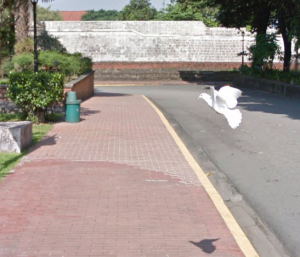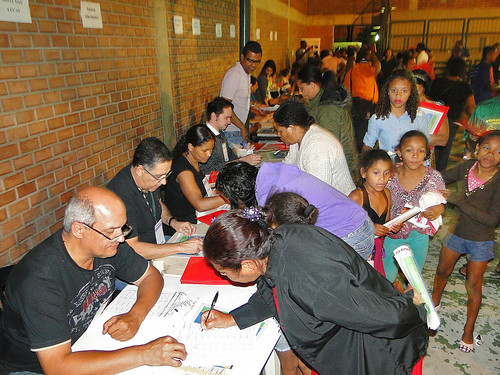In addition to supporting the strong version of democracy that calls for a fully engaged citizenry, Dewey’s pragmatic philosophy also featured four other important core values.

Many Ways to Arrive at Truth. No aspect of pragmatic philosophy has been attacked more consistently than the popularized version of its theory of truth -- the version that equates pragmatic truth with “whatever works.”
Dewey rejected this simplistic definition, but he also rejected as much too narrow most other conceptions of truth prevalent in his day. He was eager to rescue truth from the logicians and scientists who equated it exclusively with formal verification. He disassociated himself from his own early religious upbringing where truth was identified with revelation and religious authority. And he wrote a scathing criticism of those whose definition of truth arose out of their obsession with a quest for a level of certainty that life cannot provide.
Our nation desperately needs a strong dose of this sort of intelligent conduct.
All in all, he was far less concerned with finding some abstract definition of truth than with discovering valid insights into how society can advance human flourishing.
Dewey was not a fluent phrasemaker. His labels were rarely vivid or memorable. Characteristically, he labeled his own broad conception of truth as “warranted assertability.”
Closely examined, this definition covers an immense patch of ground. You can assert truth claims about gravity or DNA because these are warranted by science. You can also assert truth claims about human living when these are warranted by poetry, art or everyday experience. In other words, there are multiple ways to arrive at truth.
Dewey was a strong supporter of science, but he didn’t believe that science has a monopoly on truth. He understood that we discover truth from many sources and forms of life. This is, I believe, an extremely important component of the ethic our society needs to counterbalance what the sociologist Robert Bellah labeled “our insane forms of individualism.”
In later years, Dewey relabeled his own philosophy “experimentalism.” For Dewey, the core source of pragmatic truth comes from experimenting with life, whether in the form of formal scientific experimentation or of everyday practical and esthetic experimentation.
A High Value Placed on Community. For John Dewey, our contemporary conception of self versus community would have made no sense. Dewey thought it impossible to conceive of the self as existing apart from community. He admired and internalized the definition of self that his colleague at the University of Chicago, social psychologist George Herbert Mead, had developed.
The Mead conception is that of a thoroughly social self. For Dewey as for Mead, the self and the community were inseparable.
Dewey conceived of society as organic and the individual as part of the organism. His view was that the only way individuals could give meaning to their lives was through the community. It is our membership in society that gives life whatever meaning it has.
I am not the first person to call upon Dewey’s thought to serve as a corrective for the overdose of individualism and the undervaluing of community that has overtaken American life. Bellah does so in his classic book Habits of the Heart. I find it comforting that other social scientists also discern the relevance of Dewey’s thinking to today’s wicked problems.
Respect for “Intelligent Conduct.” This was one of Dewey’s favorite phrases. It summed up for him the main purpose of adhering to the philosophy of pragmatism and refers to reflecting intelligently on one's actions in order to arrive at practical judgment. When the strong form of democracy prevails in society, when people feel that they truly belong to a community and their motivations are directed to making it flourish, and when they actively pursue truths that advance the public good, then “intelligent conduct” becomes the norm.
I am drafting this blog shortly after the riots in Ferguson, Mo., incited by the police killing of an unarmed black teenager. The entire episode reeks of unintelligent conduct. You could hardly ask for a more vivid display of the dysfunctionality that has overtaken parts of American society:
- In a community whose demographics are two thirds African/American, the Ferguson police force is almost completely white (50 out of a total of 53 cops).
- The police chief refused for days to identify the cop whose gun had killed the boy or to show any other signs of transparency in their investigation of the incident.
- To quell the protests that followed, the police armed themselves with military equipment suitable for fighting the Taliban in the mountains of Afghanistan, totally inappropriate for crowd control in an American city.
- In a stunning example of unintelligent conduct, the Pentagon had given military equipment it no longer needed for fighting terrorists to any city who wanted it for free. Ferguson’s police force used the Pentagon’s armored vehicles and other military equipment, compounding the Pentagon’s bad judgment.
Incidents such as these present a picture of American life that is the extreme opposite of Dewey’s vision. Dewey’ philosophy of pragmatism respects competence, achievement, practicality, civic discussion and public decision-making – all summed up in his pregnant phrase “intelligent conduct.” President Obama was making essentially the same point with his caveat: “Don’t do stupid stuff.”
Our nation desperately needs a strong dose of this sort of intelligent conduct.
The Relevance of Philosophy to Everyday Life. Dewey took issue with the assumption of many academic philosophers that somehow their methods make them privy to timeless eternal truths. He had little respect for the traditional spectator role of philosophy. His philosophy has always totally engaged in what he called “the problems of men.”
He probably was overly optimistic about how successful philosophy might be in confronting and resolving society’s problems. Unlike the majority of American academic philosophers, he was willing to get his hands dirty and take on any and all problems that confronted our society over his long life. (He died in 1952 at the age of 93).
In his insightful book John Dewey and the High Tide of American Liberalism, political philosopher Alan Ryan speaks of Dewey replacing “…the image of the philosopher as a dealer in saving truths… with the image of the philosopher as cultural critic” exercising a strong social obligation to address practical problems of living. (p106).
This is the aspect of pragmatism that philosopher Richard Rorty and others were eager to rescue in the late years of the last century. Pragmatism seeks to liberate philosophy from its isolation in museum-like departments of academic philosophy. Rather, it positions philosophy as a disciplined way of putting first things first. As such, it is an indispensable tool for developing and strengthening a countervailing ethic to our overdose of individualism.

 As we hope you’ve heard by now, NCDD was honored to host
As we hope you’ve heard by now, NCDD was honored to host 



